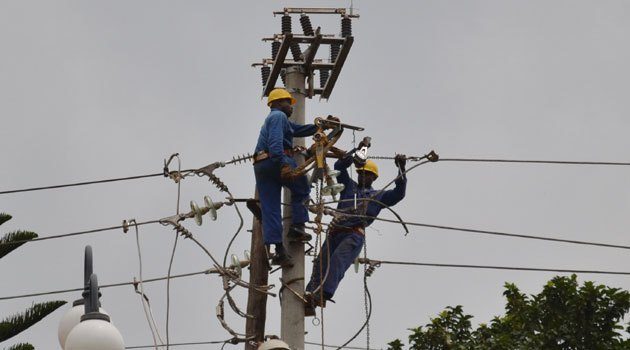Ethiopia-Kenya power transmission line
A Chinese firm has began the construction of a major power transmission line project within Ethiopia. The firm China Electric Power Equipment and Technology (CET) announced Monday that it had officially commenced the construction of the Ethiopia-Kenya power transmission line
Expected to cost USD1.26 billion the Ethiopia-Kenya power transmission line is financed by the African Development Bank. It runs about 1,045km, of which 445km is within Ethiopia’s territory and the rest in Kenya.
The 500 KV transmission line will have the transmitting capacity of 2,000 MW.
The Ethiopia-Kenya power project is expected to be completed within a year.It aims at achieve regional power grids interconnection in the East Africa sub-region, is expected to be completed within a year.
Officials from the Ethiopian Electric Power (EEP) and CET attended the project’s commencement ceremony at Wolayta Sodo, about 425 km south of Ethiopia’s capital Addis Ababa.
Reta Nigussie, EEP Transmission and Substation Projects Program Officer expressed confidence that the project will boost Ethiopia’s economy by generating foreign currency.
“It will transmit 2,000 MW to Kenya and other East African countries. It will be useful for Ethiopia because it generates foreign currency. It will help our economy to develop,” said Reta.
He expressed optimism that China Electric Power Equipment and Technology will complete the Ethiopia-Kenya power project on the stipulated time.
Huge economic benefits
Speaking on the occasion, Rong Hulin, senior representative of CET, reiterated that the project would lead to huge economic benefits for Ethiopia in terms of generating foreign currency and new jobs for locals.
He also expressed the company’s commitment to completing and delivering the project with high quality as per the contract schedule.
“Reliance on diesel generators in Kenya and in diesel generators in Ethiopia reduce capital investment in productive technologies and growth. The components of diesel generators are bulky, expensive items which require maintenance to run well and even then the voltage regulators cannot compete with grid stability under load Reducing this source of power will greatly benefit the economies.
Ethiopia currently exports less than 10mw to the Kenyan border towns; it plans to increase the current 100 megawatts it sells to Sudan and the 50 megawatts to Djibouti this year. It also has agreements to export 400 megawatts to Rwanda and Tanzania and soon to Burundi.
Energy in Africa has continued to be a major deterrent to economic growth in the continent. Noting the Energy problem, US president in 2013 unveiled Power Africa programme aimed at connecting more Africans to electricity.

